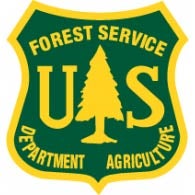SSGP
 SSGP Overview
SSGP Overview
This project aims to begin to investigate the genetic basis of adaptation in coast redwood using genome-based tools developed and successfully applied for similar studies in loblolly pine (Pinus taeda), Douglas-fir (Pseudotsuga menziesii) and other conifers. The information gained from this study will be novel in that we will generate the first genome-based tools for redwood, a species generally considered to be recalcitrant to such genetic analysis due to its large and polyploid genome.
The data gathered in the context of this and a related planned project (Rogers and Neale 2006), will enable us to begin to understand the genetic basis of adaptation in redwood. This will be useful in making more informed decisions in redwood conservation planning and the selection of appropriately adapted material for restoration. Interpretation of the data will also assist in maintaining genetic diversity in this species, essential to its ability to meet the challenges of climate change.
Project Objectives
- Identification of PCR (Polymerase Chain Reaction) primers to generate high quality DNA sequences from 40 genes putatively involved in plant adaptation to the environment, and optimize the experimental protocols for their use.
- PCR primers are short (20-25 base) pieces of DNA which are designed to bind to specific sequences such as genes. By using PCR primers developed in other conifers for genes known to be important for adaptation, we can bypass the expenditure and time required to build a genome sequence resource for coast redwood. We will screen raw data from 10, 000 primer assays generated in the context of an investigation into comparative genomics between different conifer species (Neale and Langley, 2006a, Neale and Langley 2006b). From this, we will select 40 primer pairs that good quality sequence (i.e. showing clearly distinguishable base peaks) in redwood.
- This will allow us to rapidly generate the first sequence data for coast redwood. In the longer term, we will be able to use this data to perform both within and between species comparisons of genetic variation and nucleotide diversity
- To resequence 40 genes in coast redwood and discover SNP (Single Nucleotide Polymorphism) and allelic (haplotype) variation in these sequences.
- We will demonstrate the validity of the experimental parameters determined by generating sequence, or “resequencing” 40 loblolly pine genes using redwood DNA in 12 individuals.
- Our long-term goal is to better understand adaptive genetic variation in redwood populations. Sequence analysis of data generated by this project will, for the first time, reveal variation at the level of redwood DNA sequence (SNPs). We will eventually test these SNPs to determine their influence on the adaptive variation observed across the redwood geographic range.
Resources
- Dendrome
- UCD Department of Plant Sciences
- Institute of Forest Genetics
- Coast Redwood Conservation
- ADEPT2 Project (Primers used in Redwood Project result from ADEPT2 project efforts )
Participating Organizations


